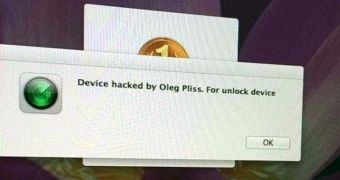Russia’s Interior Ministry’s cyber crime department, also known as Directorate K, has arrested two hackers who exploited Apple’s Find My iPhone app to block devices and ask for money in exchange for unlocking the devices.
As some of you will undoubtedly notice, the hack in question sounds identical to the Oleg Pliss ransomware attack that was reported in Australia recently. The attackers’ origins were unknown, so these two fellas could well be our hackers.
Directorate K said the hackers – one a teenager, the other in his early 20s – actually used two methods to gain remote access to the victims’ phones.
“The first involved gaining access to the victim’s Apple ID by means of the creation of phishing pages, (gaining) unauthorized access to email or using methods of social engineering,” it said. “The second scheme was aimed at attaching other people’s devices to a prearranged account.”
The second method is actually even smarter than the first. By signing in with pre-arranged credentials, the users basically surrendered to the crooks without knowledge.
Russian police reportedly began looking for these guys months ago, so the ransomware attack is certainly not new. The duo is facing up to two years in prison. How did they confirm these guys were the hackers? Easy!
“[Directorate K] said officers confiscated computer hardware, SIM cards, phones and how-to literature on hacking in searches of the suspects’ apartments in southern Moscow,” while surveillance cameras showed them “withdrawing cash from ATMs using bank cards linked to accounts into which they told victims to transfer money,” Reuters reports.
One of the suspects had actually been convicted of a previous crime, according to the Interior Ministry: “He had practiced a lower-tech form of extortion: Stealing license plates from neighbors’ cars and selling them back to their owners.”
As far as the iOS ransomware attack is concerned, Apple couldn’t do anything about it, as there was no code breaking involved. Basically, crooks would simply gain access to said devices because they knew their passwords at one point. It was enough to know a user’s password for only a few minutes to have the phone locked.
Then, through the power of Find My iPhone, they would remotely lock iDevices and display a message stating that the device had been hacked. The hackers would promise to restore the device back to its previous state in exchange for $50 / €50 or, in some cases, $100 / €100.
According to the report, cyber security experts and western law enforcement are unhappy with the way Russian authorities are dealing with hackers on its soil.

 14 DAY TRIAL //
14 DAY TRIAL //